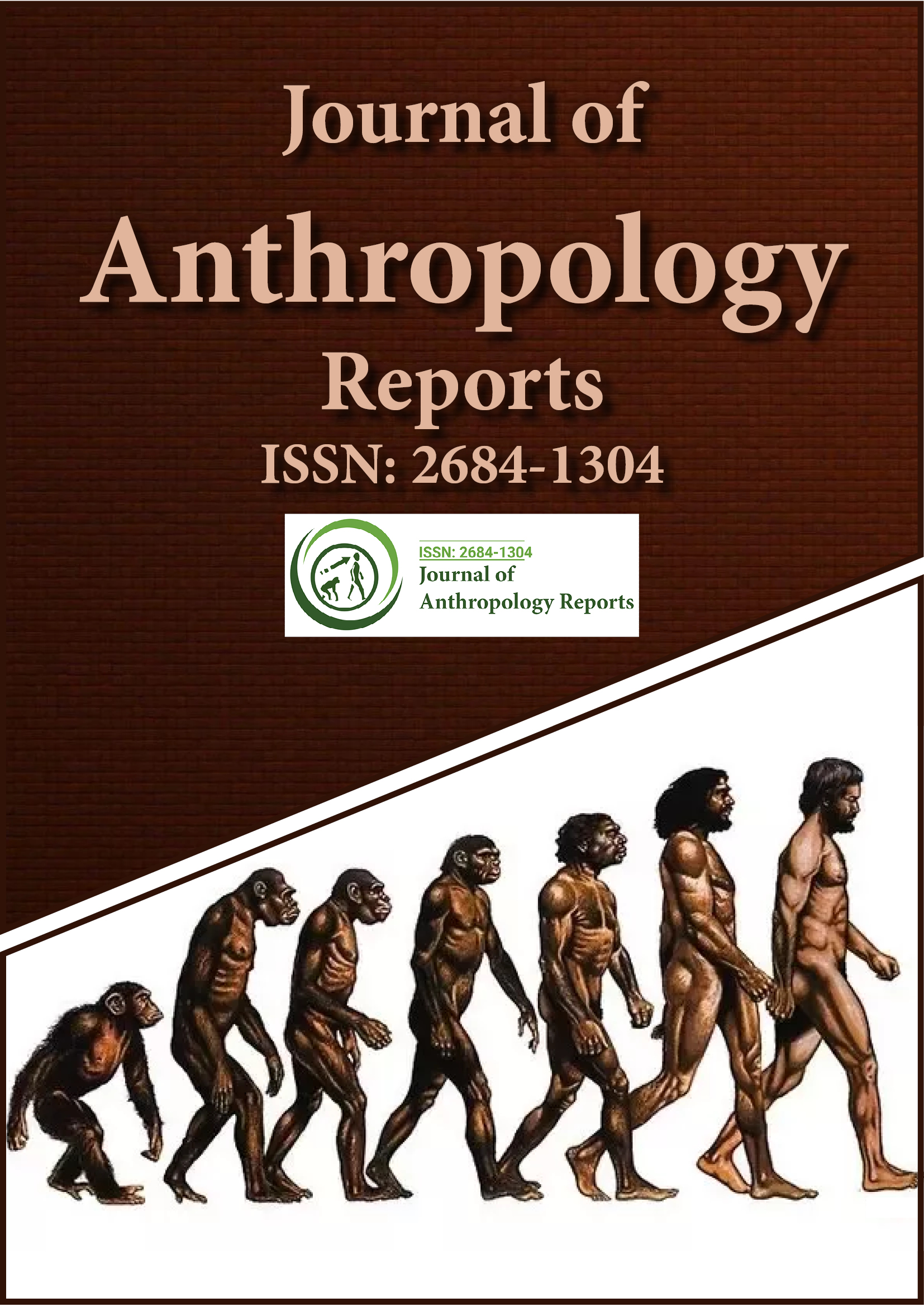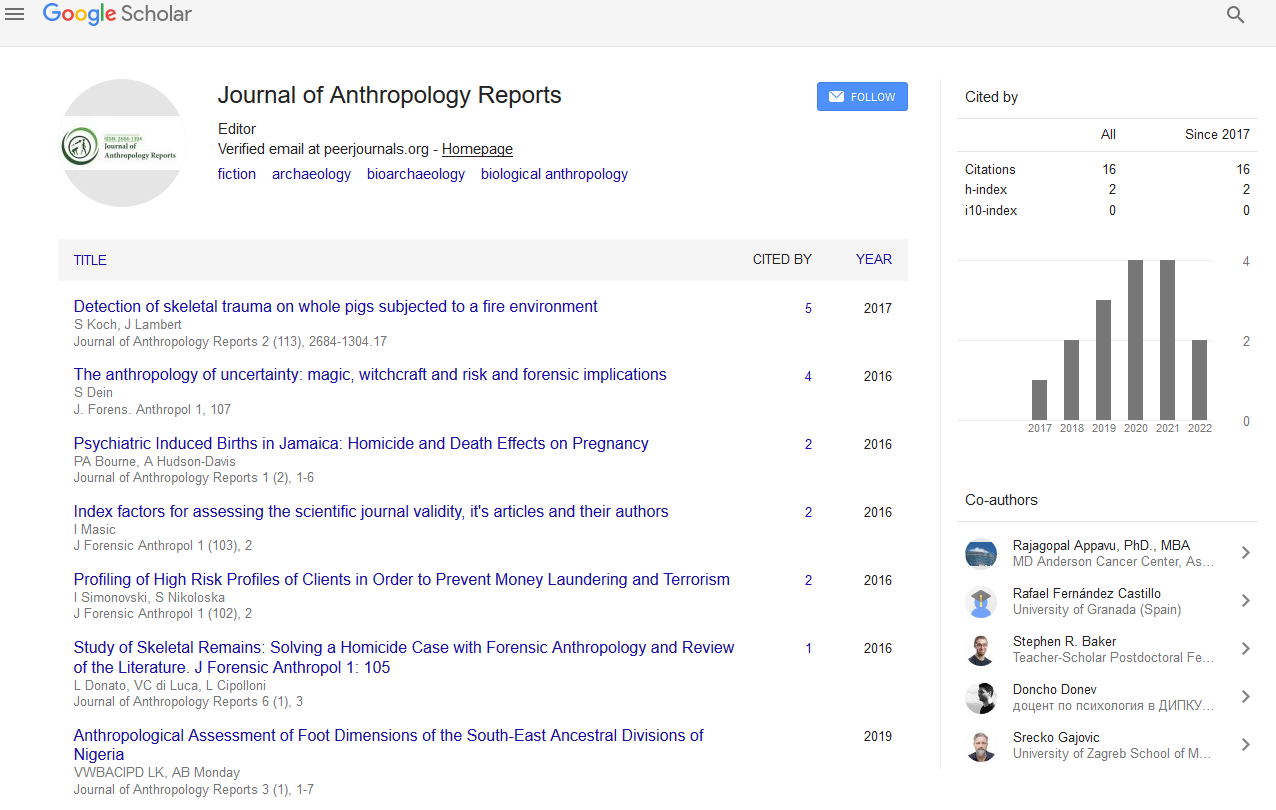Indexed In
- RefSeek
- Hamdard University
- EBSCO A-Z
Useful Links
Share This Page
Journal Flyer

Open Access Journals
- Agri and Aquaculture
- Biochemistry
- Bioinformatics & Systems Biology
- Business & Management
- Chemistry
- Clinical Sciences
- Engineering
- Food & Nutrition
- General Science
- Genetics & Molecular Biology
- Immunology & Microbiology
- Medical Sciences
- Neuroscience & Psychology
- Nursing & Health Care
- Pharmaceutical Sciences
Short Communication - (2024) Volume 7, Issue 3
Tamiang Traditions as a Protective Mechanism Against Postpartum Depression
Emily Russell*Received: 30-Aug-2024, Manuscript No. JFA-24-28381; Editor assigned: 02-Sep-2024, Pre QC No. JFA-24-28381 (PQ); Reviewed: 16-Sep-2024, QC No. JFA-24-28381; Revised: 23-Sep-2024, Manuscript No. JFA-24-28381 (R); Published: 30-Sep-2024, DOI: 10.35248/2684-1304.24.7.206
Description
Postpartum Depression (PPD) is a complex and challenging condition that affects many women globally after childbirth. It is characterized by a range of emotional, psychological and physical symptoms that can severely impact a woman's well-being and her ability to care for her newborn [1]. While Western medical approaches to managing postpartum depression are well-established, there is growing interest in understanding the role of local wisdom, cultural practices and community support systems in alleviating the effects of PPD. A study on the role of Tamiang’s local wisdom, through the lens of linguistic anthropology, highlights how indigenous cultural practices and language can significantly contribute to the mental health of new mothers, especially in preventing or reducing postpartum depression [2,3].
Tamiang is a region in Indonesia with a rich cultural history and strong traditions that have been passed down through generations. These cultural practices and beliefs, deeply embedded in the local community, offer a unique approach to mental health care, particularly concerning postpartum depression [4]. The study uses linguistic anthropology to explore the intersection of language, culture and mental health in the context of Tamiang. Linguistic anthropology provides an essential framework for understanding how language reflects, constructs and influences the lived experiences of individuals and communities [5,6]. In this case, the language used to describe postpartum experiences, traditional rituals and the communal support system offers valuable insights into how Tamiang’s local wisdom functions as a protective mechanism for new mothers.
The first significant aspect of Tamiang’s local wisdom is the community’s emphasis on social cohesion and the role of family and close-knit support networks in postnatal care. New mothers are surrounded by family members, including mothers, aunts and grandmothers, who actively participate in the postpartum process. Through shared rituals, stories and emotional support, the community reinforces the importance of family solidarity in helping new mothers navigate the physical and emotional challenges of childbirth. The language used in these practices often focuses on nurturing, comfort and the acknowledgment of the mother’s emotional and physical journey. By offering a sense of belonging and care, these practices help reduce feelings of isolation and stress, which are often contributors to postpartum depression [7,8].
Additionally, specific rituals in Tamiang culture emphasize physical healing, spiritual well-being and emotional care. Traditional postnatal practices such as warm herbal baths, massage and the use of aromatic oils are paired with verbal affirmations and communal support, helping the new mother feel supported both physically and emotionally. The words spoken during these practices are filled with positive reinforcement, reaffirming the new mother's strength, beauty and importance within the family and community. Linguistically, these practices help cultivate a sense of self-worth, which is a critical factor in combating the emotional toll that can contribute to postpartum depression [9].
Moreover, the linguistic anthropology perspective reveals how the language of the Tamiang community around postpartum care is a reflection of the deeper cultural values of empathy, mutual assistance and collective responsibility. The use of particular metaphors, proverbs and expressions in Tamiang often reinforces the idea that motherhood is a shared responsibility between the mother, her family and the larger community. These cultural messages, conveyed through language, serve to mitigate feelings of stress and anxiety, which are key contributors to postpartum depression. By emphasizing the importance of collective responsibility and mutual care, the community helps the new mother avoid feelings of loneliness and inadequacy, which are common emotional triggers of postpartum depression [10].
In conclusion, the role of Tamiang’s local wisdom in reducing postpartum depression provides valuable insights into the intersection of culture, language and mental health. Through linguistic anthropology, this study shows how cultural practices and language work in tandem to support new mothers, addressing both their emotional and physical needs in a comprehensive and community-centered manner. The language of care, empathy and mutual support inherent in Tamiang’s traditions helps reduce the risk of postpartum depression by fostering a strong sense of belonging and emotional well-being. This study highlights the importance of incorporating local wisdom and cultural practices into modern health care approaches, particularly in mental health care, where traditional knowledge can offer effective strategies for prevention and healing.
References
- Sibarani R, Fachry ME. The role of Tamiang's local wisdom in decreasing postpartum depression: A linguistic anthropology study. Enfermeria Clinica. 2020;30:491-493.
- Cuelenaere L. Aymara forms of walking: A linguistic anthropological reflection on the relation between language and motion. Language Sciences. 2011;33(1):126-37.
- Harvey TS. Cultural issues and linguistic complications in health communication. 2024.
- Meilana L, Fang Q. Local knowledge-based study on the status of horseshoe crabs along the Indonesian coast. Reg Stud Mar Sci. 2020;36:101252.
- Wilson DR. On the common of descent of neuropsychiatry and anthropology. Neurosci Biobehav Rev. 2024;105827.
- Bens J. Affective text trajectories: Toward a linguistic anthropology of critique. J Pragmat. 2021;186:142-50.
- Clifford BN, Rainey V, Eggum ND. Parental postpartum depression and children’s receptive and expressive language during the first six years of life: A systematic review of depression timing, status, and chronicity. Dev Rev. 2024;71:101105.
- O'Leary N, Jairaj C, Molloy EJ, McAuliffe FM, Nixon E, O'Keane V. Antenatal depression and the impact on infant cognitive, language and motor development at six and twelve months postpartum. Early Hum Dev. 2019;134:41-6.
- Qi W, Huang S, Zhao J, Cui X, Wei Z, Cui G, et al. The preventive effect of psychological and psychosocial interventions on postpartum depression: An overview of systematic reviews. J Psychiatr Res. 2024;182:21-33.
- Omar M, Levkovich I. Exploring the efficacy and potential of large language models for depression: A systematic review. J Affect Disord. 2024;371:234-244.
Citation: Russell E (2024). Tamiang Traditions as a Protective Mechanism Against Postpartum Depression. J Anthropology Rep. 7:206.
Copyright: © Russell E. This is an open-access article distributed under the terms of the Creative Commons Attribution License, which permits unrestricted use, distribution, and reproduction in any medium, provided the original author and source are credited.

